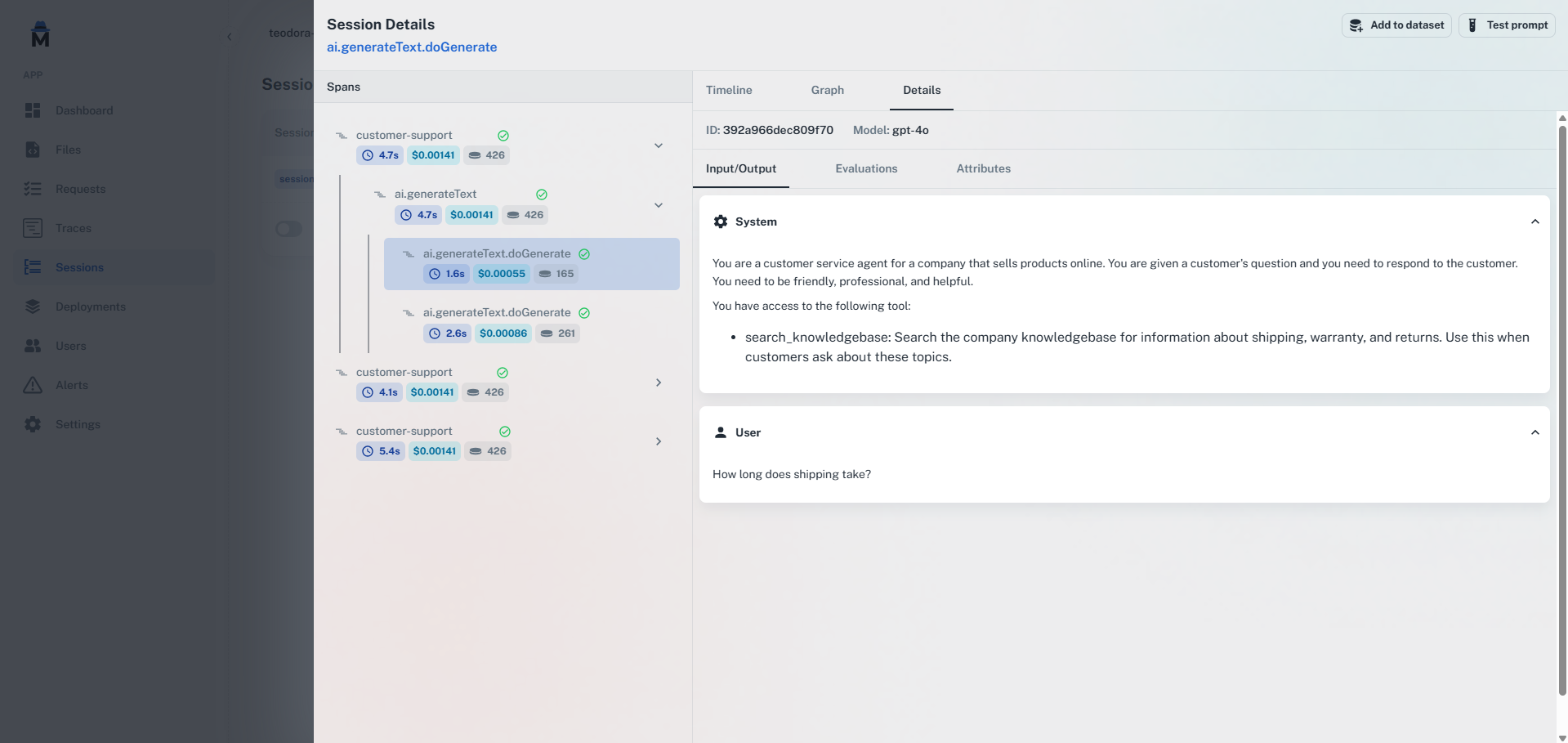Developers configure sessions in your application. See Development documentation for setup instructions.

Understanding Sessions
A session represents a logical grouping of related traces. Common examples include: Conversations - All messages in a chat with a specific user. Workflows - Multi-step processes like document analysis or data processing. Batch Jobs - Related operations processing multiple items. User Journeys - Complete user interactions from start to finish.Session Components
Each session includes: Session ID - Unique identifier that links traces together. Session Name - Human-readable name for easy identification. Traces - All prompt executions associated with the session. Timeline - Chronological view of all activity in the session. Aggregated Metrics - Total costs, tokens, and durations across all traces.Viewing Sessions
Access sessions in the AgentMark dashboard:- Navigate to the Sessions tab
- Browse or search for specific sessions
- Click a session to view:
- All traces in the session
- Timeline of events
- Total token usage and costs
- Custom metadata
- Performance metrics
Best Practices
Use Consistent IDs - Ensure all related traces use the same session ID. Meaningful Names - Give sessions descriptive names for easy identification. Include Context - Add relevant metadata to help with debugging and analysis. Limit Scope - Keep sessions focused on specific workflows or interactions. Session Lifecycle - For long-running applications, create new sessions periodically rather than endless sessions. Clean Separation - Don’t mix unrelated operations in the same session.Integration
To enable sessions in your application, passsessionId and sessionName when creating traces with the SDK. All traces that share the same sessionId are automatically grouped into a session in the dashboard. See the Development Observability documentation for implementation details.
Next Steps
Traces and Logs
Understand trace details
Development Setup
Implement sessions in your app
Alerts
Set up session-based alerts
Metrics
Analyze session performance
Have Questions?
We’re here to help! Choose the best way to reach us:
- Join our Discord community for quick answers and discussions
- Email us at hello@agentmark.co for support
- Schedule an Enterprise Demo to learn about our business solutions